Abstract
Four White King pigeons in Experiment I were exposed to a fixed-time 90-second food schedule with successive access to water and a conspecific target. Drinking per session was sporadic and minimal, while attack per session occurred during most interfood intervals for all animals. Analysis of the temporal distribution of attack showed that the typical postreinforcement pattern of attack developed over the course of the experiment. In Experiment II, the same animals were exposed to a series of fixed-time schedules ranging from 30 to 360 seconds with successive access to water and target. Time engaged in drinking and the number of interfood intervals with drinking were less than that of attack. Food and no-food baselines, which have been typically used to assess schedules-induced drinking and attack, respectively, were used to evaluate the effect of the schedule on attack and water ingestion. Relative to the no-food baseline, both attack and drinking were enhanced by the schedule in all birds. Relative to the food baseline, drinking was slightly suppressed in three birds and attack was enhanced in all. For all animals, the food baseline resulted in more attack and drinking than the no-food baseline.
Full text
PDF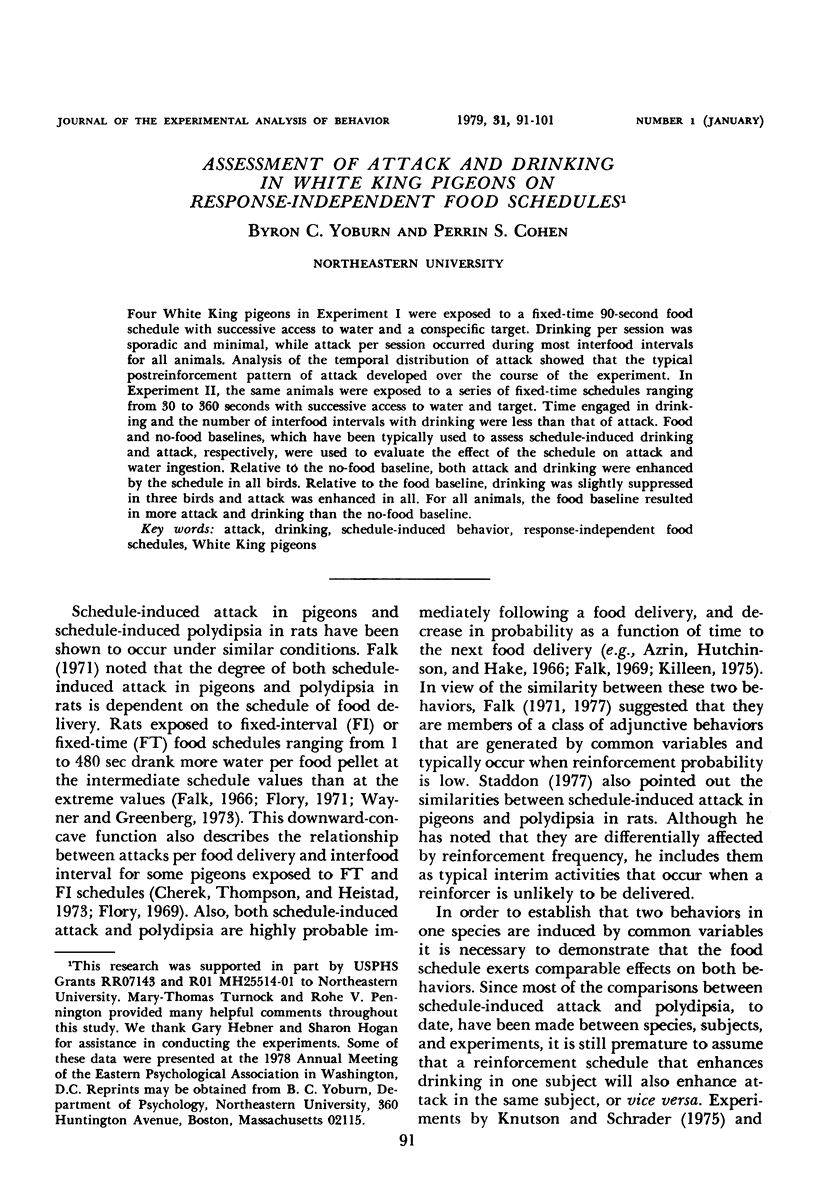
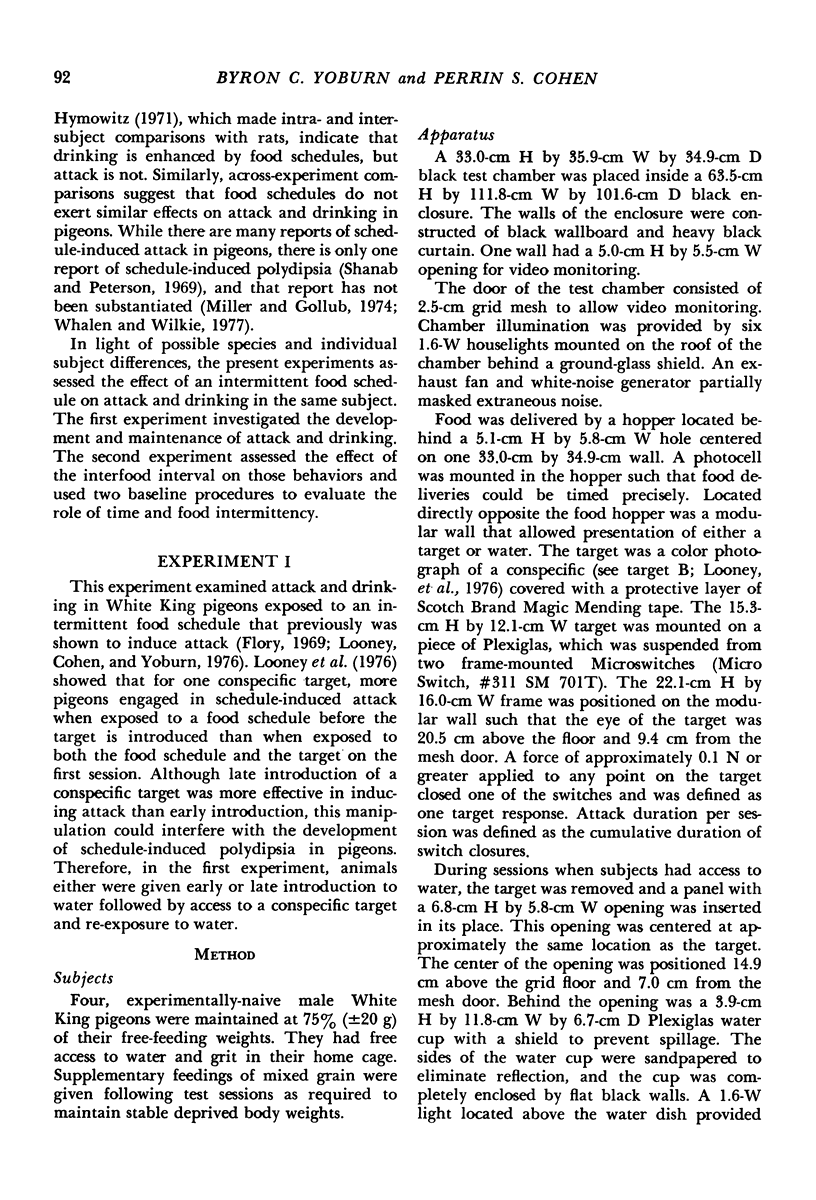
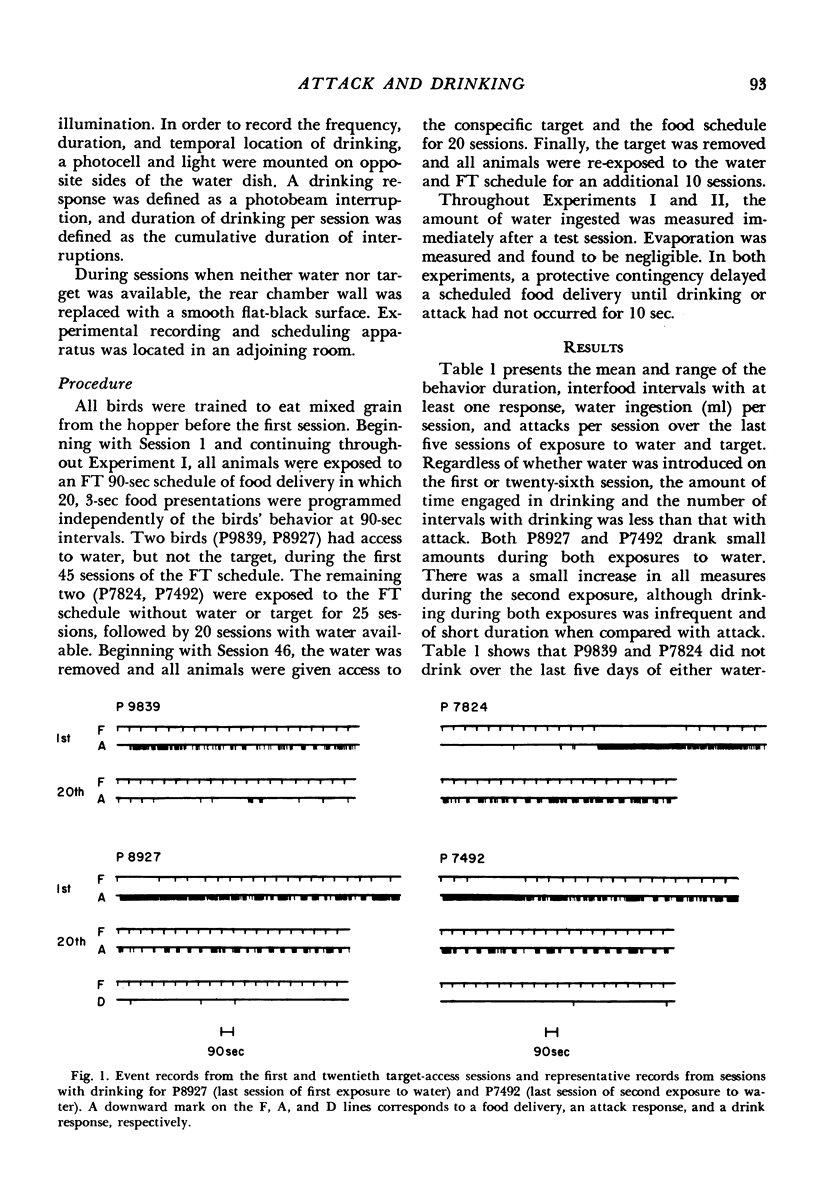
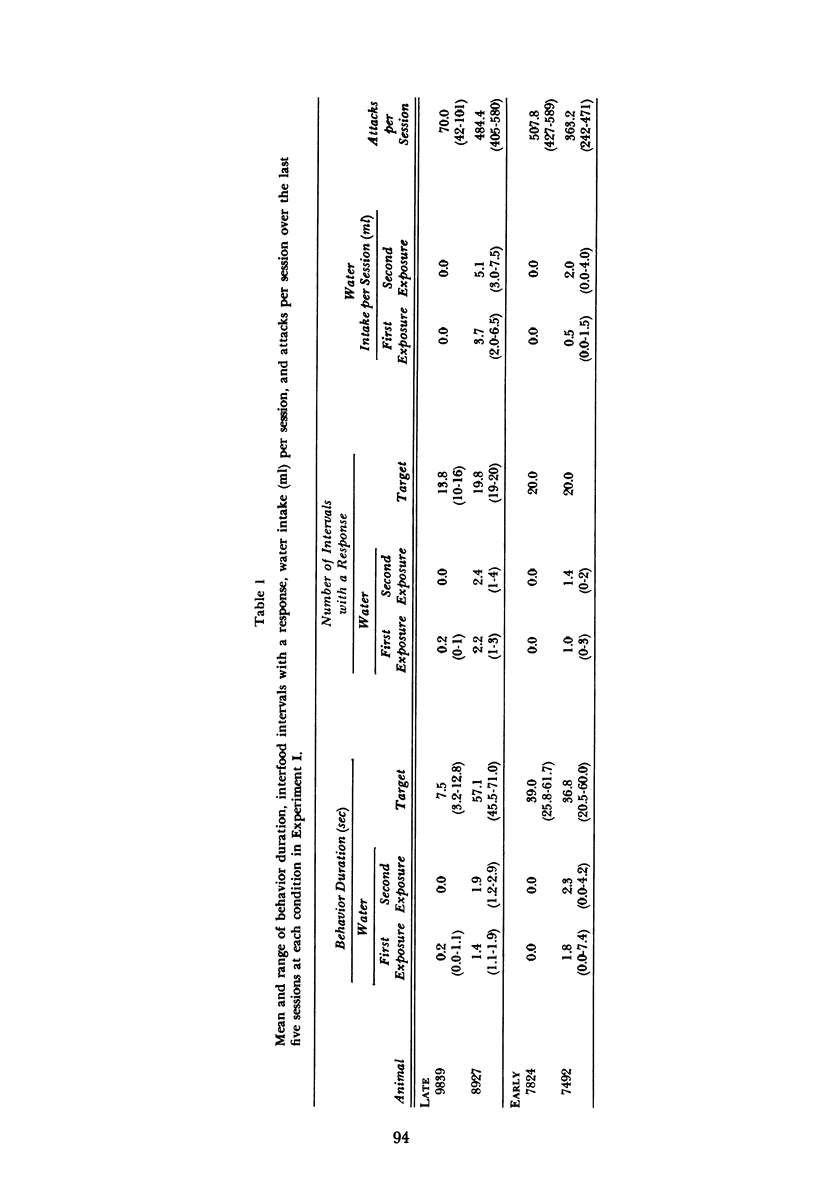
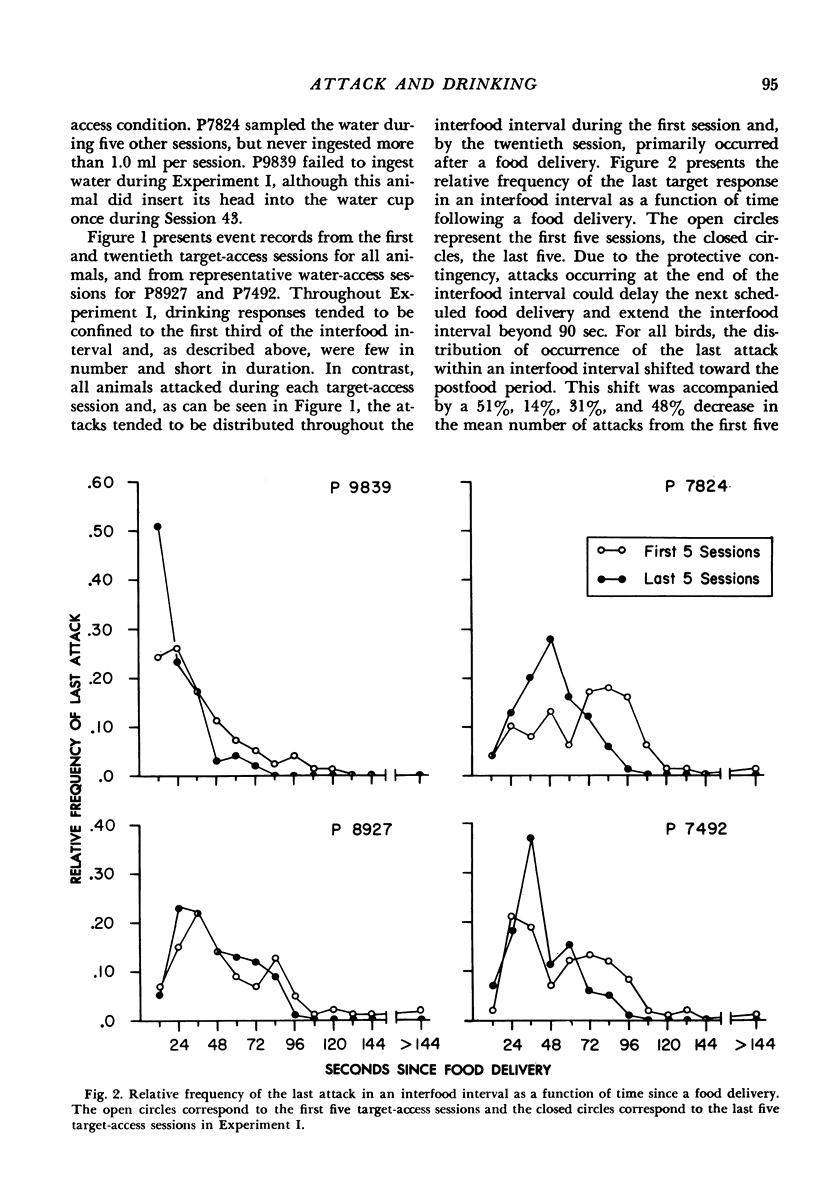
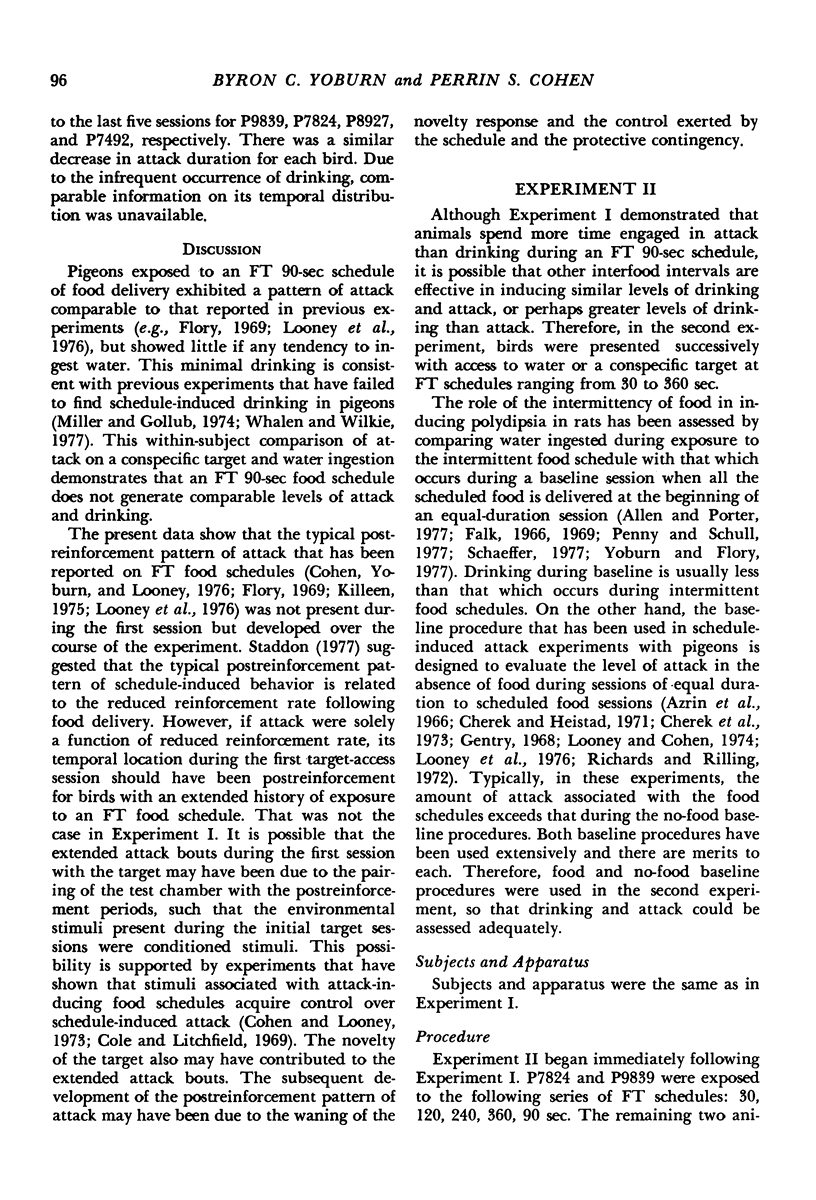
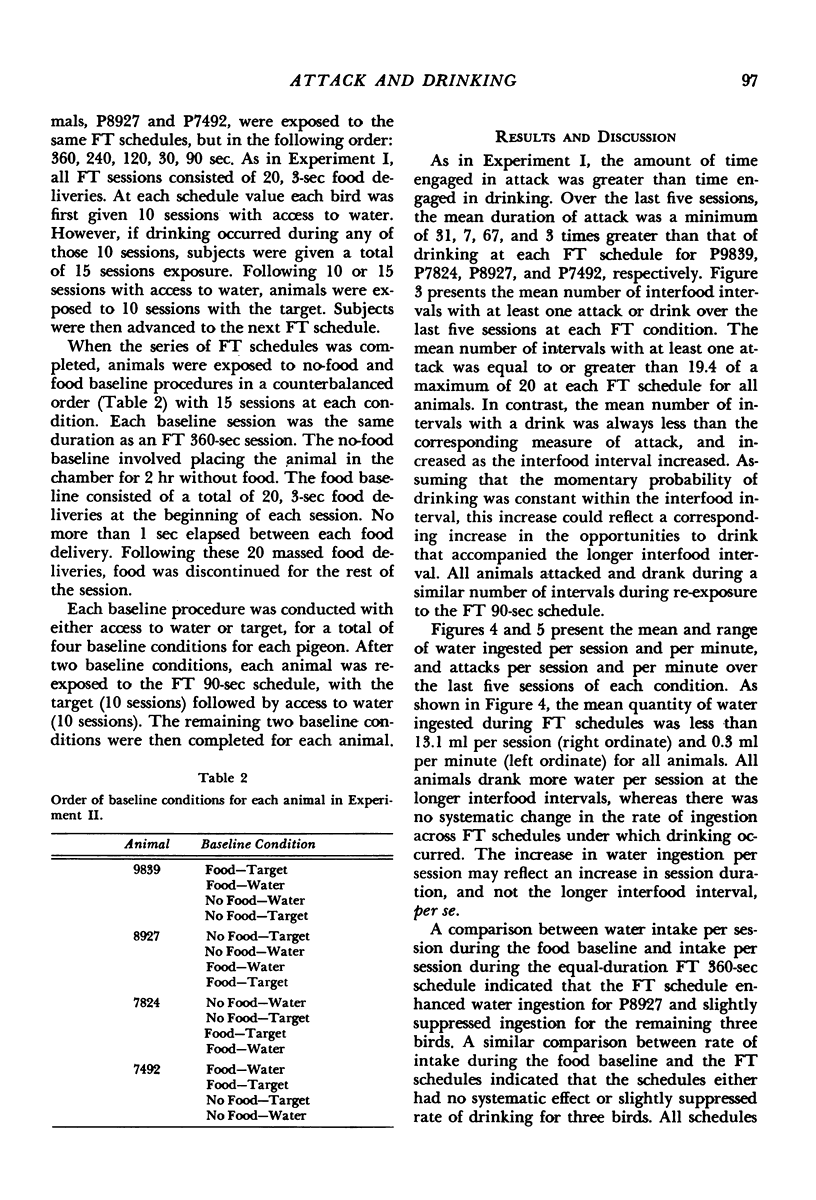
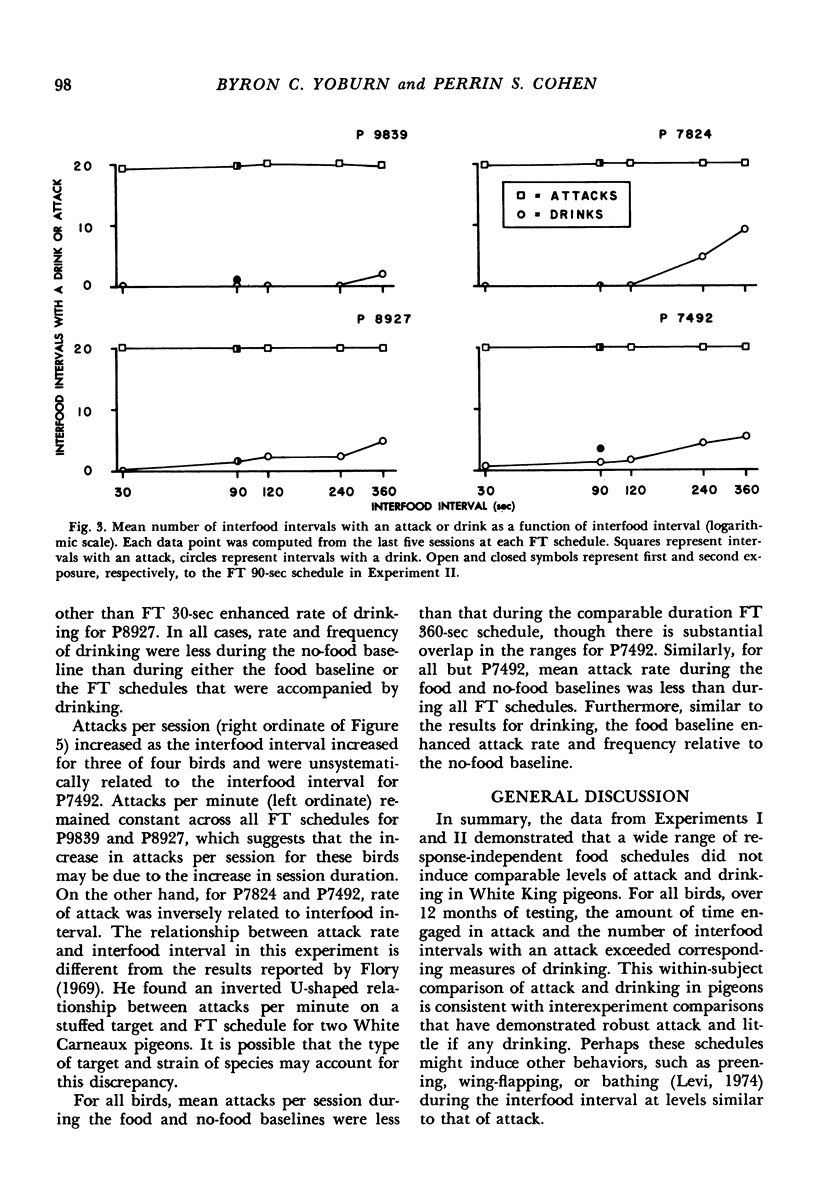
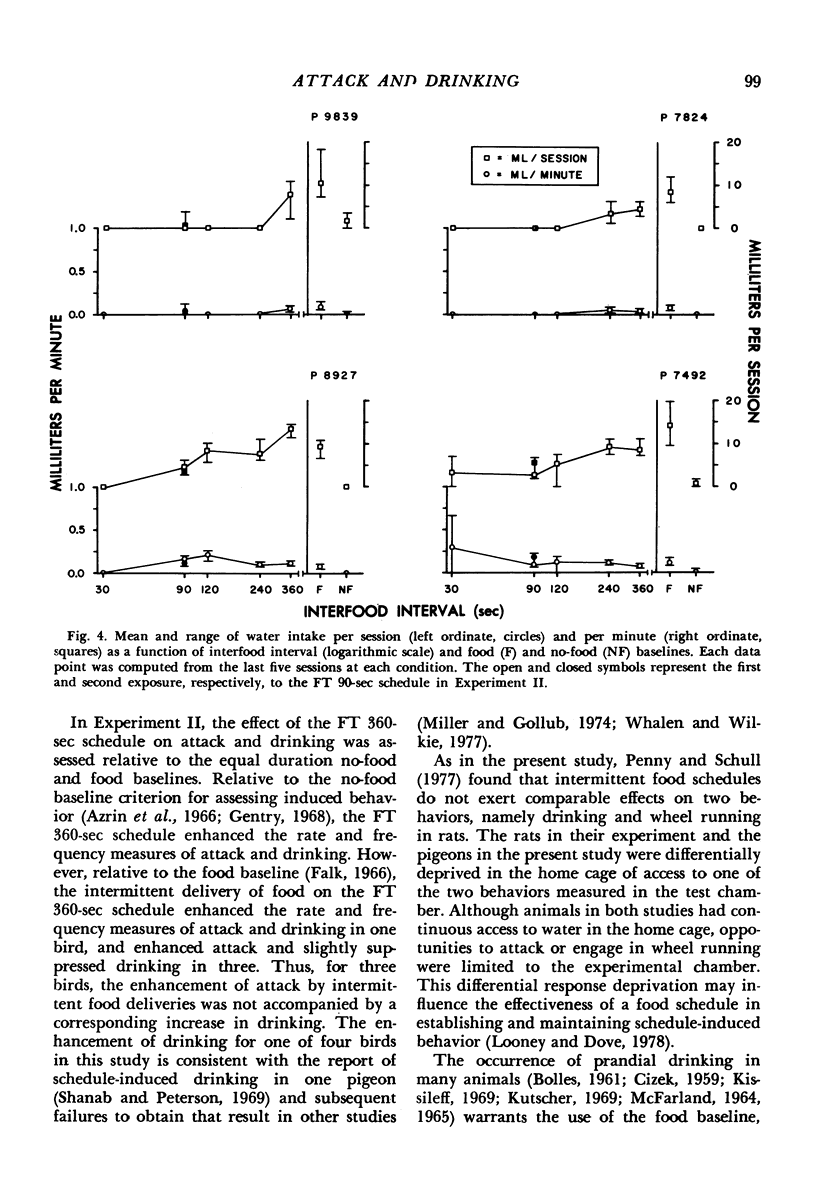

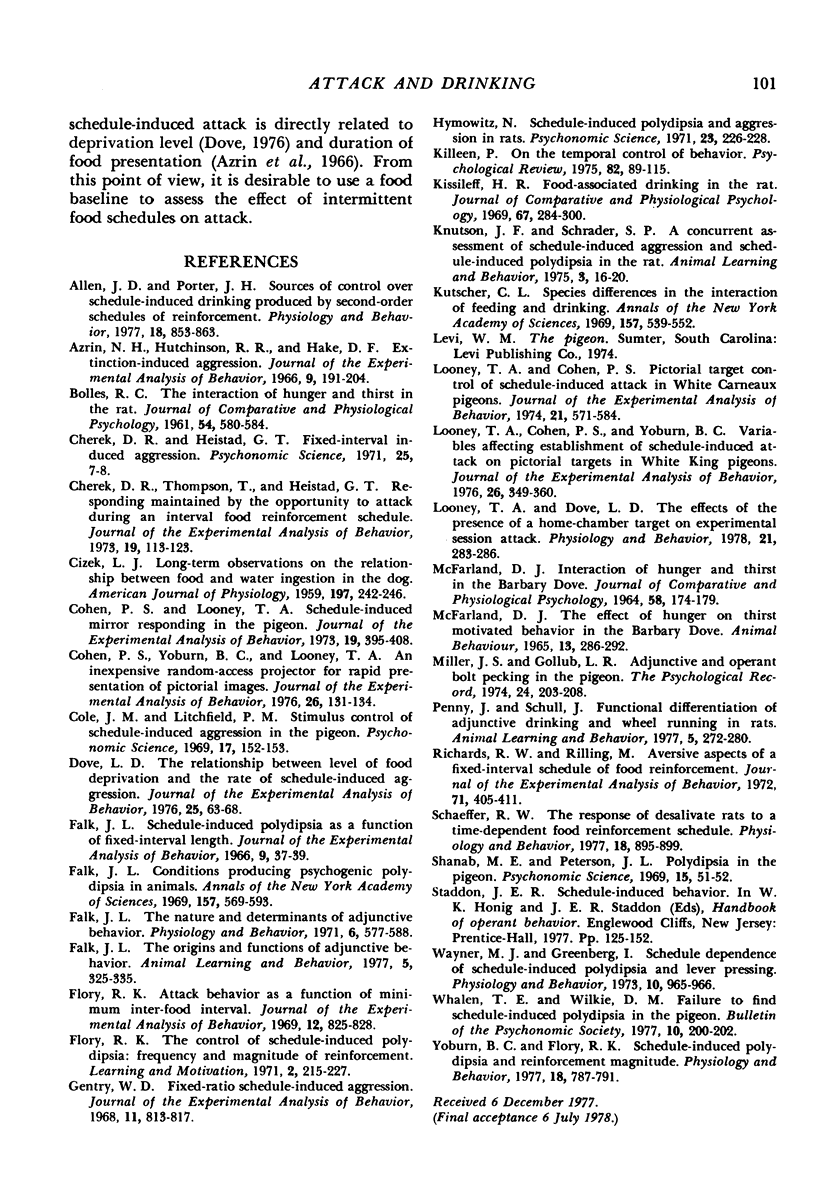
Selected References
These references are in PubMed. This may not be the complete list of references from this article.
- Allen J. D., Porter J. H. Sources of control over schedule-induced drinking produced by second-order schedules of reinforcement. Physiol Behav. 1977 May;18(5):853–863. doi: 10.1016/0031-9384(77)90194-9. [DOI] [PubMed] [Google Scholar]
- Azrin N. H., Hutchinson R. R., Hake D. F. Extinction-induced aggression. J Exp Anal Behav. 1966 May;9(3):191–204. doi: 10.1901/jeab.1966.9-191. [DOI] [PMC free article] [PubMed] [Google Scholar]
- BOLLES R. C. The interaction of hunger and thirst in the rat. J Comp Physiol Psychol. 1961 Oct;54:580–584. doi: 10.1037/h0044595. [DOI] [PubMed] [Google Scholar]
- Cherek D. R., Thompson T., Heistad G. T. Responding maintained by the opportunity to attack during an interval food reinforcement schedule. J Exp Anal Behav. 1973 Jan;19(1):113–123. doi: 10.1901/jeab.1973.19-113. [DOI] [PMC free article] [PubMed] [Google Scholar]
- Cohen P. S., Looney T. A. Schedule-induced mirror responding in the pigeon. J Exp Anal Behav. 1973 May;19(3):395–408. doi: 10.1901/jeab.1973.19-395. [DOI] [PMC free article] [PubMed] [Google Scholar]
- Cohen P. S., Yoburn B. C., Looney T. A. An inexpensive random-access projector for rapid presentation of pictorial images. J Exp Anal Behav. 1976 Jul;26(1):131–134. doi: 10.1901/jeab.1976.26-131. [DOI] [PMC free article] [PubMed] [Google Scholar]
- Dove L. D. Relation between level of food deprivation and rate of schedule-induced attack. J Exp Anal Behav. 1976 Jan;25(1):63–68. doi: 10.1901/jeab.1976.25-63. [DOI] [PMC free article] [PubMed] [Google Scholar]
- Falk J. L. Conditions producing psychogenic polydipsia in animals. Ann N Y Acad Sci. 1969 May 15;157(2):569–593. doi: 10.1111/j.1749-6632.1969.tb12908.x. [DOI] [PubMed] [Google Scholar]
- Falk J. L. Schedule-induced polydipsia as a function of fixed interval length. J Exp Anal Behav. 1966 Jan;9(1):37–39. doi: 10.1901/jeab.1966.9-37. [DOI] [PMC free article] [PubMed] [Google Scholar]
- Falk J. L. The nature and determinants of adjunctive behavior. Physiol Behav. 1971 May;6(5):577–588. doi: 10.1016/0031-9384(71)90209-5. [DOI] [PubMed] [Google Scholar]
- Flory R. Attack behavior as a function of minimum inter-food interval. J Exp Anal Behav. 1969 Sep;12(5):825–828. doi: 10.1901/jeab.1969.12-825. [DOI] [PMC free article] [PubMed] [Google Scholar]
- Gentry W. D. Fixed-ratio schedule-induced aggression. J Exp Anal Behav. 1968 Nov;11(6):813–817. doi: 10.1901/jeab.1968.11-813. [DOI] [PMC free article] [PubMed] [Google Scholar]
- Kissileff H. R. Food-associated drinking in the rat. J Comp Physiol Psychol. 1969 Mar;67(3):284–300. doi: 10.1037/h0026773. [DOI] [PubMed] [Google Scholar]
- Kutscher C. L. Species differences in the interaction of feeding and drinking. Ann N Y Acad Sci. 1969 May 15;157(2):539–552. doi: 10.1111/j.1749-6632.1969.tb12906.x. [DOI] [PubMed] [Google Scholar]
- Looney T. A., Cohen P. S. Pictorial target control of schedule-induced attack in White Carneaux pigeons. J Exp Anal Behav. 1974 May;21(3):571–584. doi: 10.1901/jeab.1974.21-571. [DOI] [PMC free article] [PubMed] [Google Scholar]
- Looney T. A., Cohen P. S., Yoburn B. C. Variables affecting establishment of schedule-induced attack on pictorial targets in White King pigeons. J Exp Anal Behav. 1976 Nov;26(3):349–360. doi: 10.1901/jeab.1976.26-349. [DOI] [PMC free article] [PubMed] [Google Scholar]
- Looney T. A., Dove L. D. Effects of the presence of a home-chamber target on experimental-session attack. Physiol Behav. 1978 Aug;21(2):283–286. doi: 10.1016/0031-9384(78)90055-0. [DOI] [PubMed] [Google Scholar]
- MCFARLAND D. J. INTERACTION OF HUNGER AND THIRST IN THE BARBARY DOVE. J Comp Physiol Psychol. 1964 Oct;58:174–179. doi: 10.1037/h0046950. [DOI] [PubMed] [Google Scholar]
- McFarland D. J. The effect of hunger on thirst motivated behaviour in the Barbary dove. Anim Behav. 1965 Apr-Jul;13(2):286–292. doi: 10.1016/0003-3472(65)90048-5. [DOI] [PubMed] [Google Scholar]
- Richards R. W., Rilling M. Aversive aspects of a fixed-interval schedule of food reinforcement. J Exp Anal Behav. 1972 May;17(3):405–411. doi: 10.1901/jeab.1972.17-405. [DOI] [PMC free article] [PubMed] [Google Scholar]
- Schaeffer R. W. The response of desalivate rats to a time-dependent food reinforcement schedule. Physiol Behav. 1977 May;18(5):895–899. doi: 10.1016/0031-9384(77)90199-8. [DOI] [PubMed] [Google Scholar]
- Wayner M. J., Greenberg I. Schedule dependence of schedule induced polydipsia and lever pressing. Physiol Behav. 1973 May;10(5):965–966. doi: 10.1016/0031-9384(73)90067-x. [DOI] [PubMed] [Google Scholar]
- Yoburn B. C., Flory R. K. Schedule-induced polydipsia and reinforcement magnitude. Physiol Behav. 1977 May;18(5):787–791. doi: 10.1016/0031-9384(77)90184-6. [DOI] [PubMed] [Google Scholar]


